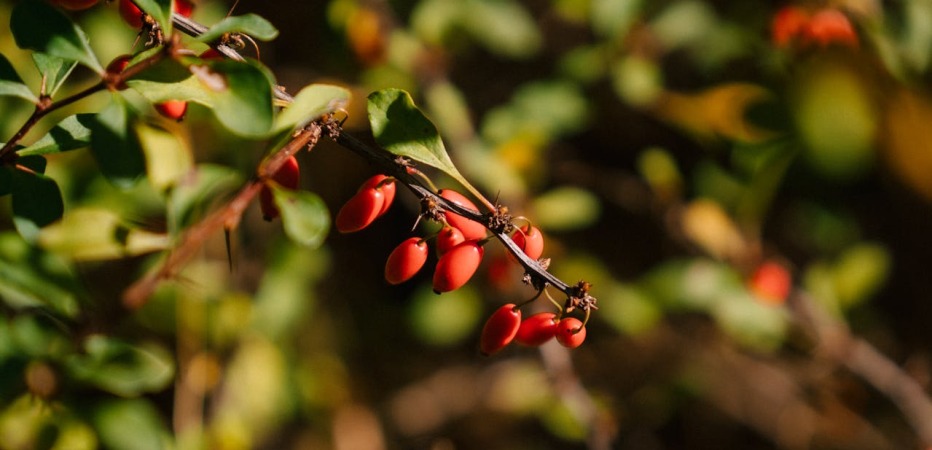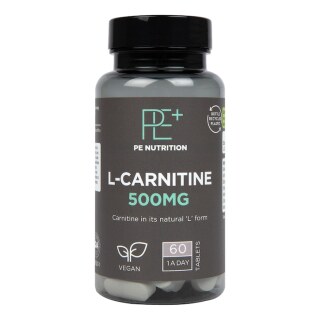Berberine and Benefits
Berberine has been used for hundreds of years, showing a wide range of uses, including:
- Hypoglycemic action, improving insulin resistance and blood sugar.
- Action against LDL - cholesterol and triglycerides.
- Action against Helicobacter pylori.
- Action against diarrhea.
- Hepatoprotective action.
Blood sugar regulation. What does it mean and which impact it might have?
Although berberine is an ingredient with multiple uses, we chose today to analyze its action on blood sugar control and how berberine can help regulate it better.
Eating carbohydrate-rich foods (such as fruit, bread, pasta, rice, and potatoes) leads to an increase in blood sugar. For example, when we eat bread, the starch contained in the bread is broken down into hundreds of glucose molecules - the "reference molecule" of carbohydrates. The glucose is absorbed directly into the bloodstream and from there it will pass into the various tissues, in order to be used to produce energy within the cells of the tissue, in which it will be absorbed.
However, glucose needs help – particularly form insulin – so as to pass from the bloodstream to the various tissues. Insulin is one of the most important hormones in carbohydrate metabolism, produced from pancreas, which "gives the command" for the cell to open its "gate" in order for glucose to enter and be converted into energy.
So it's plausible that if insulin is not doing its job properly - under-performing - or not working at all, then there is a problem with glucose transport into the cell. Thus, insulin resistance is defined as a condition in which insulin is either not produced adequately or works with reduced efficiency, and most tissues into the body, show reduced sensitivity to its 'commands'. Insulin resistance - therefore - is the main mechanism by which the dysregulated blood sugar is caused. If insulin resistance is left untreated for a prolonged period of time, it can lead to prediabetes, type II diabetes and increases the risk of obesity and cardiovascular disorders.
Berberine and Blood Sugar
The traditional extract of berberine has been used since ancient times for its hypoglycemic action, as it appears to improve insulin secretion from pancreas and increase its effectiveness, leading to beneficial effects on blood glucose control, while it has not noted any serious side effects except for a possible mild to moderate gastrointestinal discomfort.
Who is berberine for?
Because of its action in regulating blood sugar levels, as we have seen above, berberine is aimed at people who have insulin resistance. Individuals who can benefit from the action of berberine are:
- People with dysregulated blood sugar levels (pre-diabetics or people with insulin resistance)
The approval of your personal GP is considered necessary.
- Women with Polycystic Ovarian Syndrome (PCOS). In PCOS there is often insulin resistance as a clinical manifestation, being one of the reasons why, women with PCOS find it difficult to lose weight. In addition, it improves quality of life in PCOS, as it appears to help reduce androgen and testosterone levels, and contributes to normal ovulation in women with PCOS.
The approval of your personal endocrinologist/gynecologist is considered necessary.
In addition to its action on insulin resistance and blood sugar regulation, it can be recommended in:
- People with elevated triglycerides or elevated LDL - cholesterol.
- People suffering from Helicobacter pylori, due to its strong antibacterial and antiviral action.
- People with non-alcoholic fatty liver disease (NAFLD), as it appears to contribute to reduced fat storage in the liver.
Contraindications
Caution should be given, when taking berberine in the presence of disease or concomitant medication, particularly anticoagulant or antidiabetic medication. It is not considered safe in children and adolescents, as well as in pregnancy and breast-feeding. In case of diabetes or other underlying medical condition, the approval of your doctor is considered necessary.
In conclusion
Berberine is another option, derived from nature, which has been chosen by Asian people for thousands of years. Its versatility has reached scientific interest, with increasing research data regarding its action in improving insulin resistance and blood sugar regulation. So if your blood sugar "spiked" at your last blood check up or you have been diagnosed with PCOS, Holland & Barrett is here to offer you another natural solution that you can try, always in accordance with the approval of your healthcare professional.
Scientific References
Zhang, H., Wei, J., Xue, R., Wu, J. D., Zhao, W., Wang, Z. Z., ... & Jiang, J. D. (2010). Berberine lowers blood glucose in type 2 diabetes mellitus patients through increasing insulin receptor expression. Metabolism, 59(2), 285-292.
Lan, J., Zhao, Y., Dong, F., Yan, Z., Zheng, W., Fan, J., & Sun, G. (2015). Meta-analysis of the effect and safety of berberine in the treatment of type 2 diabetes mellitus, hyperlipemia and hypertension. Journal of ethnopharmacology, 161, 69-81.
Prajwala, B., Raghu, N., Gopenath, T. S., Shanmukhappa, B., Karthikeyan, M., Ashok, G., ... & Kanthesh, M. B. (2020). Berberine and its pharmacology potential: a review. Eur J Biomed, 7, 115-23.
Rashidi, H., Namjoyan, F., Mehraban, Z., Zakerkish, M., Ghaderian, S. B., & Latifi, S. M. (2018). The effects of active ingredients of barberry root (Berberine) on Glycemic control and insulin resistance in type 2 diabetic patients. Jundishapur journal of natural pharmaceutical products, 13(1).




















